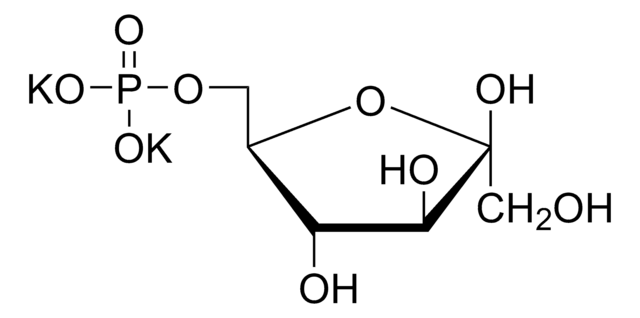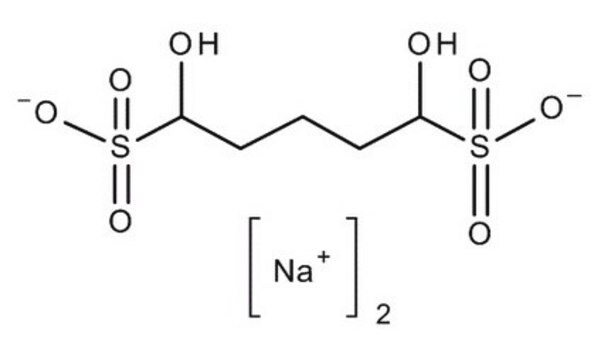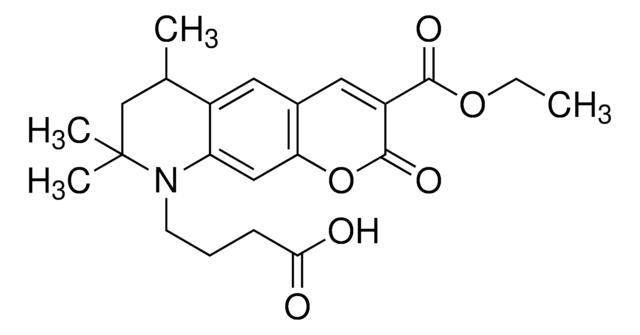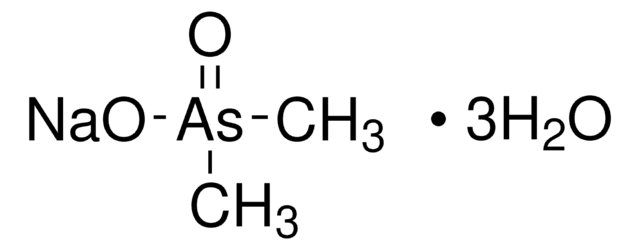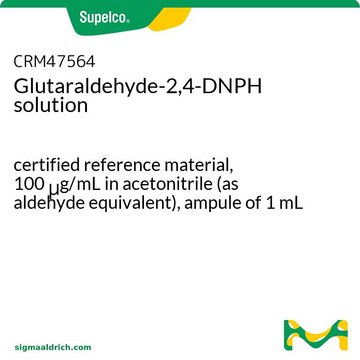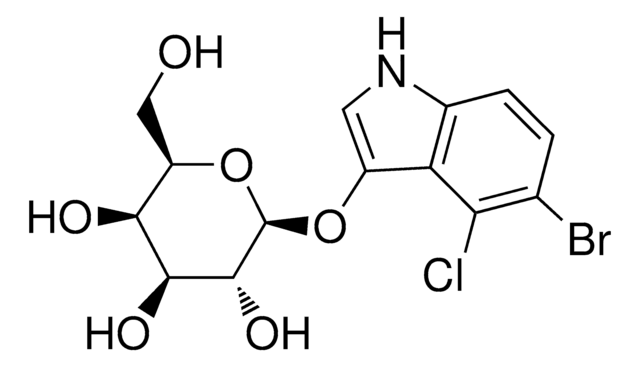G6403
Glutaraldehyde solution
50% in H2O, suitable for photographic applications
Synonym(s):
Glutaric dialdehyde solution, Pentane-1,5-dial
About This Item
Recommended Products
form
liquid
Quality Level
concentration
50% in H2O
color
colorless
mp
-21 °C ((-6 °F))
solubility
water: soluble
suitability
suitable for photographic applications
SMILES string
[H]C(CCCC([H])=O)=O
InChI
1S/C5H8O2/c6-4-2-1-3-5-7/h4-5H,1-3H2
InChI key
SXRSQZLOMIGNAQ-UHFFFAOYSA-N
Looking for similar products? Visit Product Comparison Guide
Application
- Assessment of dimensional stability of novel VPES impression material at different time intervals with standard disinfectants.: This research evaluates the dimensional stability of a novel vinyl polyether silicone (VPES) impression material when exposed to various disinfectants, including glutaraldehyde solutions, demonstrating its reliability for dental applications (Ahuja et al., 2024).
Other Notes
Signal Word
Danger
Hazard Statements
Precautionary Statements
Hazard Classifications
Acute Tox. 3 Inhalation - Acute Tox. 4 Oral - Aquatic Acute 1 - Aquatic Chronic 2 - Eye Dam. 1 - Resp. Sens. 1 - Skin Corr. 1B - Skin Sens. 1 - STOT SE 3
Target Organs
Respiratory system
Supplementary Hazards
Storage Class Code
6.1A - Combustible acute toxic Cat. 1 and 2 / very toxic hazardous materials
WGK
WGK 3
Flash Point(F)
Not applicable
Flash Point(C)
Not applicable
Choose from one of the most recent versions:
Already Own This Product?
Find documentation for the products that you have recently purchased in the Document Library.
Customers Also Viewed
Our team of scientists has experience in all areas of research including Life Science, Material Science, Chemical Synthesis, Chromatography, Analytical and many others.
Contact Technical Service
